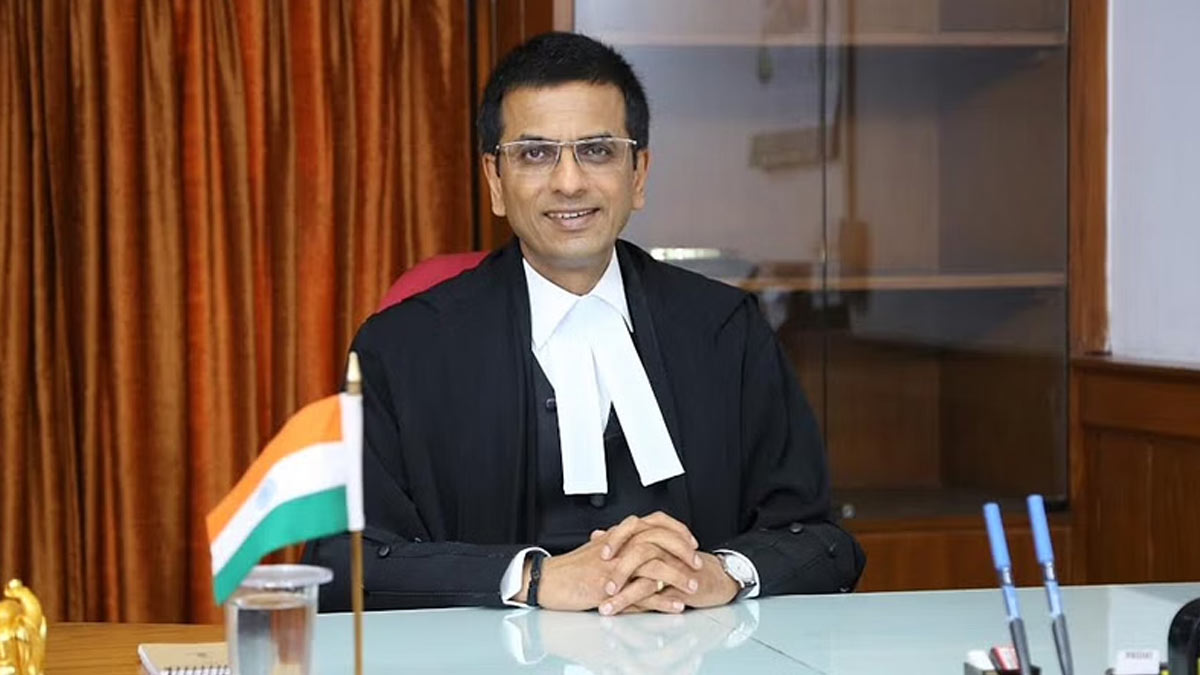
Justice Dhananjaya Yashwant Chandrachud was sworn in as new Chief Justice of India with immediate effect on Wednesday. He was named the successor to the outgoing CJI, UU Lalit on October 11, and will serve the post for the next two years, while his predecessor got a brief tenure of only 74 days. He is stepping into the shoes of his father, Justice YV Chandrachud, who served as CJI from 1978 to 1985.
He was administered the oath of office by President Droupadi Murmu at the swearing-in ceremony held in the Rashtrapati Bhavan.
During his successful career, Justice Chandrachud has been part of several landmark judgements that redefined Indian laws and gave a new face to the judiciary. Here are some of his landmark judgements:
The top court on November 9, 2019, ruled unanimously and cleared the path for the construction of a Ram Temple at the Ayodhya site, and directed the central government to allot a five acre land to the Uttar Pradesh Sunni Central Waqf Board for building a mosque. Justice Chandrachud was one of the five judges on the constitution bench.
In February 2020, a bench led by Justice Chandrachud gave a verdict in favour of women officers in the Army, enabling them to get permanent commission and command postings. He rejected the government’s stance on their physical limitations, which was based on gender performativity and other stereotypes that discriminate against women.
Later, a bench headed by him granted permanent commission to women Naval officers, thus levelling the playing field and doing away with the years of prejudice.
Don't miss:The Supreme Court Rules A Split Verdict In Karnataka Hijab Ban Case
In 2012, Justice K S Puttaswamy, a retired judge of the High Court filed a writ petition in the top court challenging the constitutional validity of the Aadhaar scheme introduced by the UPA Government. Subsequently, Justice Chandrachud wrote the lead judgement for the nine-judge bench in the case and it was unanimously held that the right to privacy should be guaranteed as a fundamental right under the Constitution.
As a part of a five-judge constitution bench, Justice Chandrachud unanimously decriminalised a part of the archaic colonial law under section 377 of the IPC which criminalised consensual unnatural sex between consenting adults and allowed homosexuality, while stating that every person irrespective of sexual orientation deserved equal rights.
On 29 September, an apex court bench presided over by Justice Chandrachud passed a verdict extending th benefits of the Medical Termination of Pregnancy Act, 1971 (MTP Act) to unmarried women. He delivered the judgement on International Safe Abortion Day and said that the law should not decide the beneficiaries of a statute based on narrow patriarchal principles about what constitutes permissible sex as it would create invidious classifications.
He also recognised marital rape as an offence in one of his opinions.
On one more five-judge bench, he held that section 497 of the IPC that criminalised adultery was unconstitutional on the grounds that it was parochial, arbitrary, and violated the right to equality and privacy.
Don't miss:National Medical Commission Bans Conversion Therapy For LGBTQ Community
He concurred with the majority opinion in the Sabarimala case that prevented women of menstruating age to the enter the temple to maintain the sanctity of the place was discriminatory and a violation of their fundamental rights.
In an interview with The Economic Times he said that the practice of keeping out women was comparable to untouchability, a moral travesty to constitutional rights that recognise the right to freedom of religion.
He was also part of the judgement which included four other judges that gave recognition to the ‘living will’ made by terminally-ill patients for passive euthanasia.
A bench headed by Justice Chandrachud ordered the demolition of the real-estate mogul Supertech’s twin towers that had 40 storeys in Noida. It was an illegal construction and violated building norms.
Our aim is to provide accurate, safe and expert verified information through our articles and social media handles. The remedies, advice and tips mentioned here are for general information only. Please consult your expert before trying any kind of health, beauty, life hacks or astrology related tips. For any feedback or complaint, contact us at [email protected].